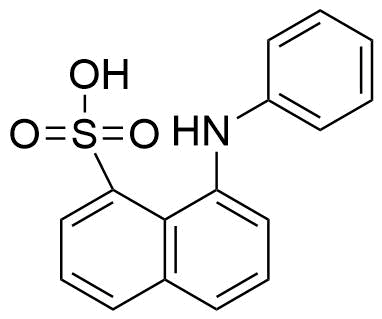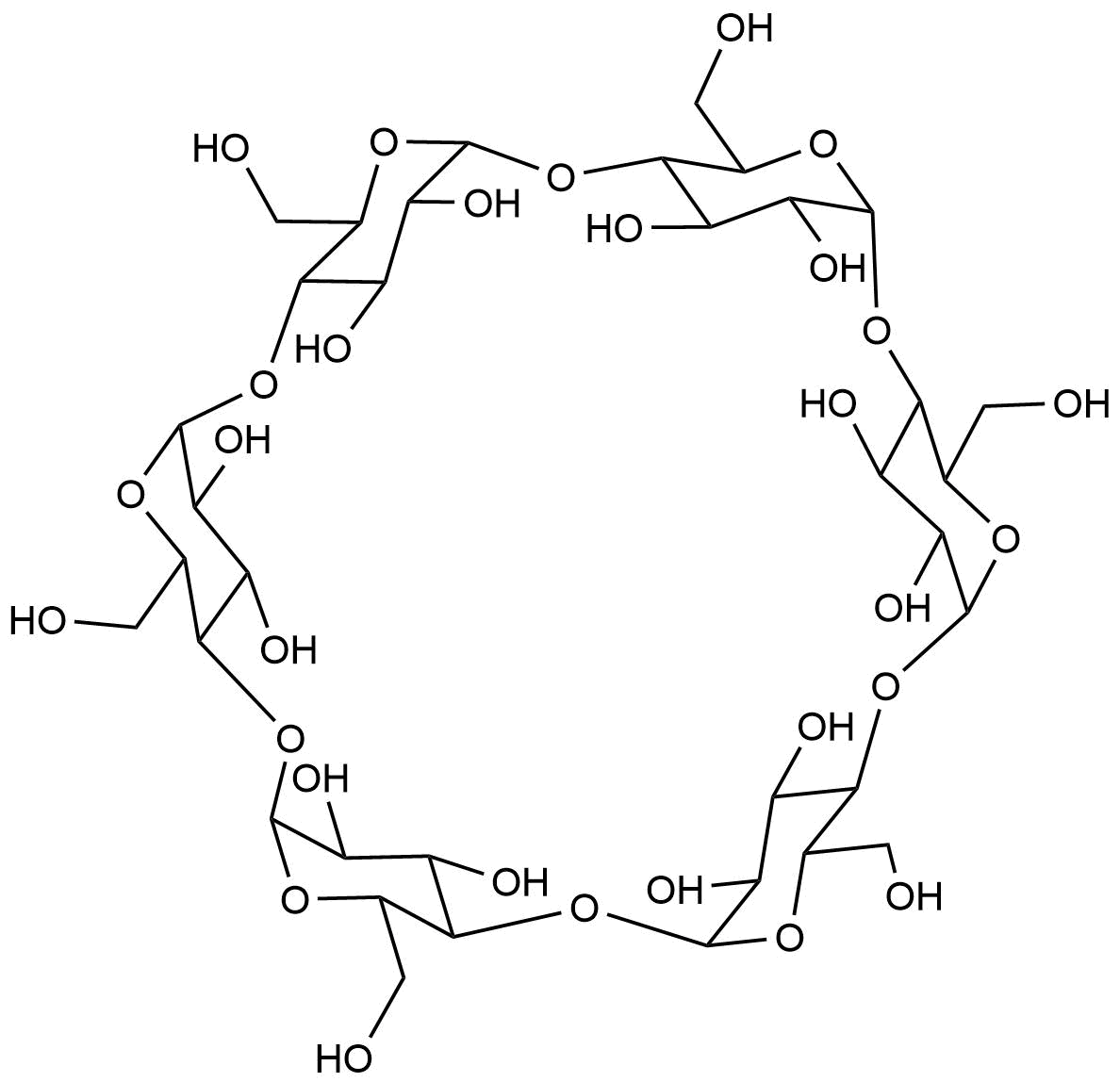Binding Properties
| 𝜈 | Molecule 1 : 1 Host | ||
| Ka < | 20.0 | ± | M-1 |
| Kd < | |||
| logKa < | |||
| T | 21.0 °C | ||
| Energy | kJ mol-1 | kcal mol-1 | |||
|---|---|---|---|---|---|
| ΔG | > | -7.33 | ± 0.0 | -1.75 | ± 0.0 |
These are the specifications of the determination of the experimental results.
| Detection Method: | Direct | |||
| Assay Type: | Direct Binding Assay | |||
| Technique: | Fluorescence | |||
| 𝛌ex | = | 335.0 nm | ||
| 𝛌em | = | 500.0 nm | ||
| Ibound⁄Ifree | = | 1.6 | ||
Detailed information about the solvation.
| Solvent System | Buffer System | phosphate pH-6.8 |
| Solvents | water | |
| Source of Concentration | ||
| pH | 6.8 |
Please find here information about the dataset this interaction is part of.
| Citation: |
B. D. Wagner, S. J. Fitzpatrick, SupraBank 2026, A Comparison of the Host–Guest Inclusion Complexes of 1,8-ANS and 2,6-ANS in Parent and Modified Cyclodextrins - Journal of Inclusion Phenomena and Macrocyclic Chemistry (dataset). https://doi.org/10.34804/supra.20211007405 |
| Link: | https://doi.org/10.34804/supra.20211007405 |
| Export: | BibTex | RIS | EndNote |
Please find here information about the scholarly article describing the results derived from that data.
| Citation: |
B. D. Wagner, S. J. Fitzpatrick, Journal of Inclusion Phenomena and Macrocyclic Chemistry 2000, 38, 467–478. |
| Link: | https://doi.org/10.1023/A:1008198825835 |
| Export: | BibTex | RIS | EndNote |
Binding Isotherm Simulations
The plot depicts the binding isotherm simulation of a 1:1 interaction of 1,8-ANS (1.0 M) and α-CD (0 — 2.0 M).
Please sign in: customize the simulation by signing in to the SupraBank.




